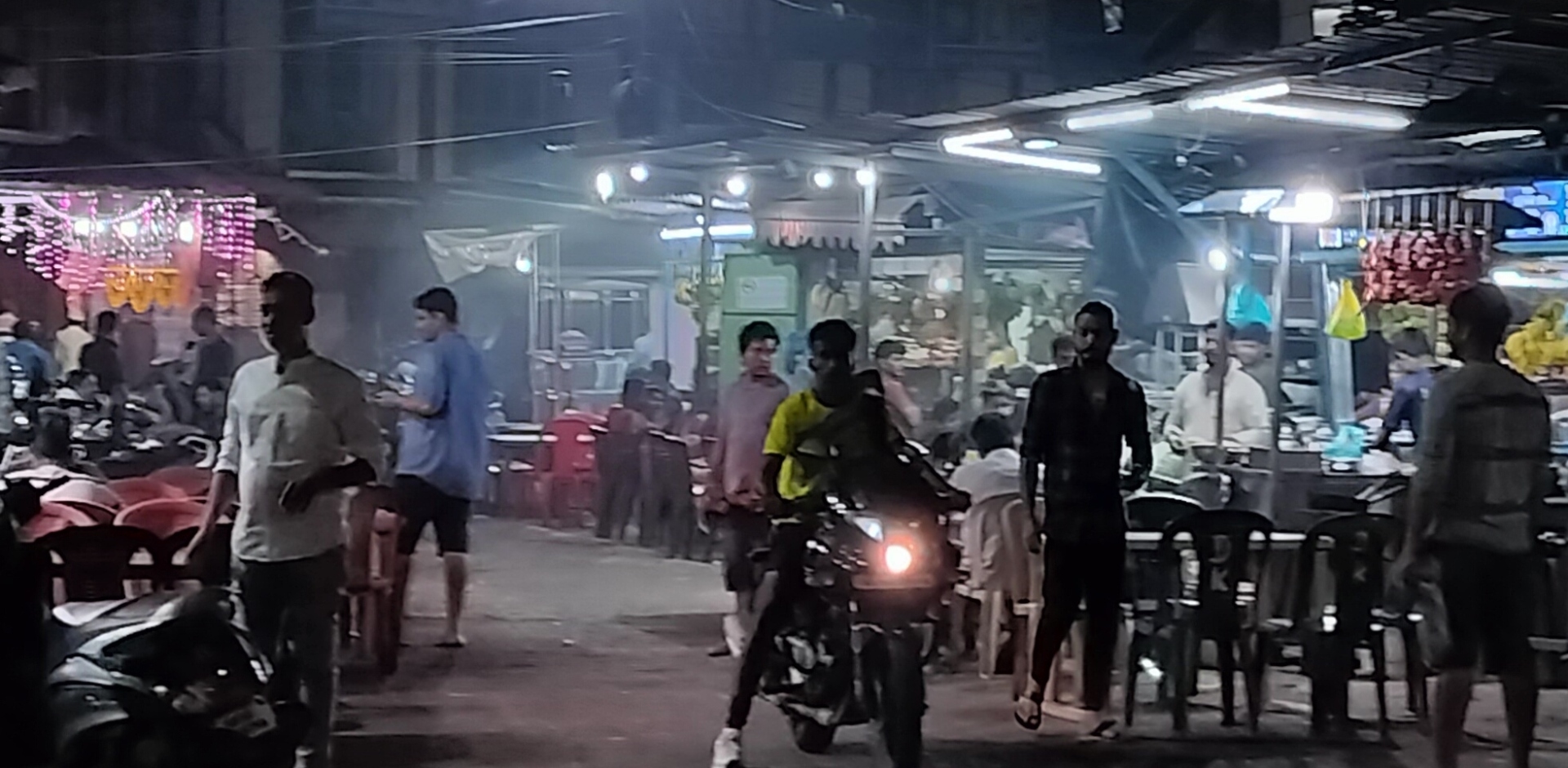Some stalls operating atop open stormwater drain carrying sewage

NIGHTLY BUZZ, DAILY RISKS: The popular food street in front of the Alankar movie theatre at Angod in Mapusa, known for its vibrant crowd and late-night snacks.
Photo Credits: Agnelo Pereira
MAPUSA
What has long been considered a late-night culinary hotspot in Mapusa has now come under the scanner for poor hygiene and violation of food safety norms.
The bustling food street in front of the iconic, though now defunct, Alankar theatre – once a favourite haunt for locals and visiting tourists – is now drawing sharp criticism for the unsanitary conditions in which food is being prepared and served.
Post 7 pm, the street transforms into a vibrant food hub with vendors setting up stalls and arranging plastic chairs for customers. The festive atmosphere, however, belies the grim reality of what lies beneath.
Many citizens have expressed concern over the unhygienic methods adopted by vendors – from cooking in open, polluted surroundings to serving food on plastic sheets and polythene paper.
A closer inspection reveals a disturbing picture: few of the stalls are reportedly operating from atop an open stormwater drain, which carries not only rainwater but also sewage from nearby residential and commercial establishments.
A regular patron of the food stalls recounted his shock after spotting a rodent running across one of the fruit stalls.
“I used to go there for the fruit salad thinking it was a safer option. But after what I saw, I’ve stopped visiting the place altogether,” he said.
Concerns have also been raised over the quality of water and oil used by the vendors.
While some stall owners admitted the limitations of working in cramped spaces, they defended their practices saying that food is often prepared at home and only reheated or fried at the stalls.
“Preparing food in such a small area is not easy, but we do our best. We try to ensure it’s clean and hygienic,” said one vendor, adding that their livelihood depends on the nightly business.
Despite these assurances, many believe that authorities have turned a blind eye, possibly due to the political backing some vendors enjoy.
As per food safety regulations, street food vendors are required to wear gloves and maintain proper hygiene while preparing and serving food – rules that are routinely flouted in the area.
An official from the Urban Health Centre in Mapusa clarified that the centre has little jurisdiction over the matter and that the Food and Drugs Administration (FDA) is the competent authority to take action.
FDA officials recently carried out an inspection at the site, during which a few stalls were fined and some ordered to shut shop for failing to comply with food safety norms.
“We have taken note of the violations and will revisit the site if necessary. The stall owners must adhere to the prescribed norms,” a senior FDA official confirmed.
Interestingly, despite the concerns, the food street continues to be a magnet for tourists.
“It’s tasty and cheap. That’s all I care about,” said a visitor from Pune, while tucking into a paper plate of noodles.
But for those who know the street better, the conversation is beginning to shift from taste to safety.
A senior citizen who lives nearby summed it up best: “We are proud of this place – it’s part of Mapusa’s charm. But charm should not come at the cost of public health.”
With food safety now firmly on the menu, the spotlight is back on authorities to strike a balance between livelihood, local culture and basic hygiene – before this iconic food street loses more than just its flavour.